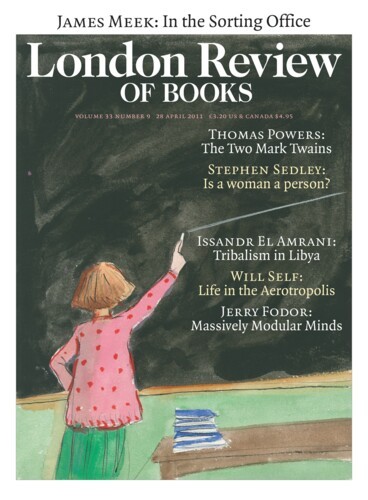‘Don’t scum me out!’: Alan Warner
Scott Hames, 28 April 2011
‘Airports,’ J.G. Ballard noted, ‘seem to be almost the only form of public architecture free from the pressures of kitsch or nostalgia. As far as I know, there are no half-timbered terminal buildings or pebble-dashed control towers.’ Alan Warner isn’t a novelist you’d expect to be much interested in the departures hall, being best known for a sort of wild...


